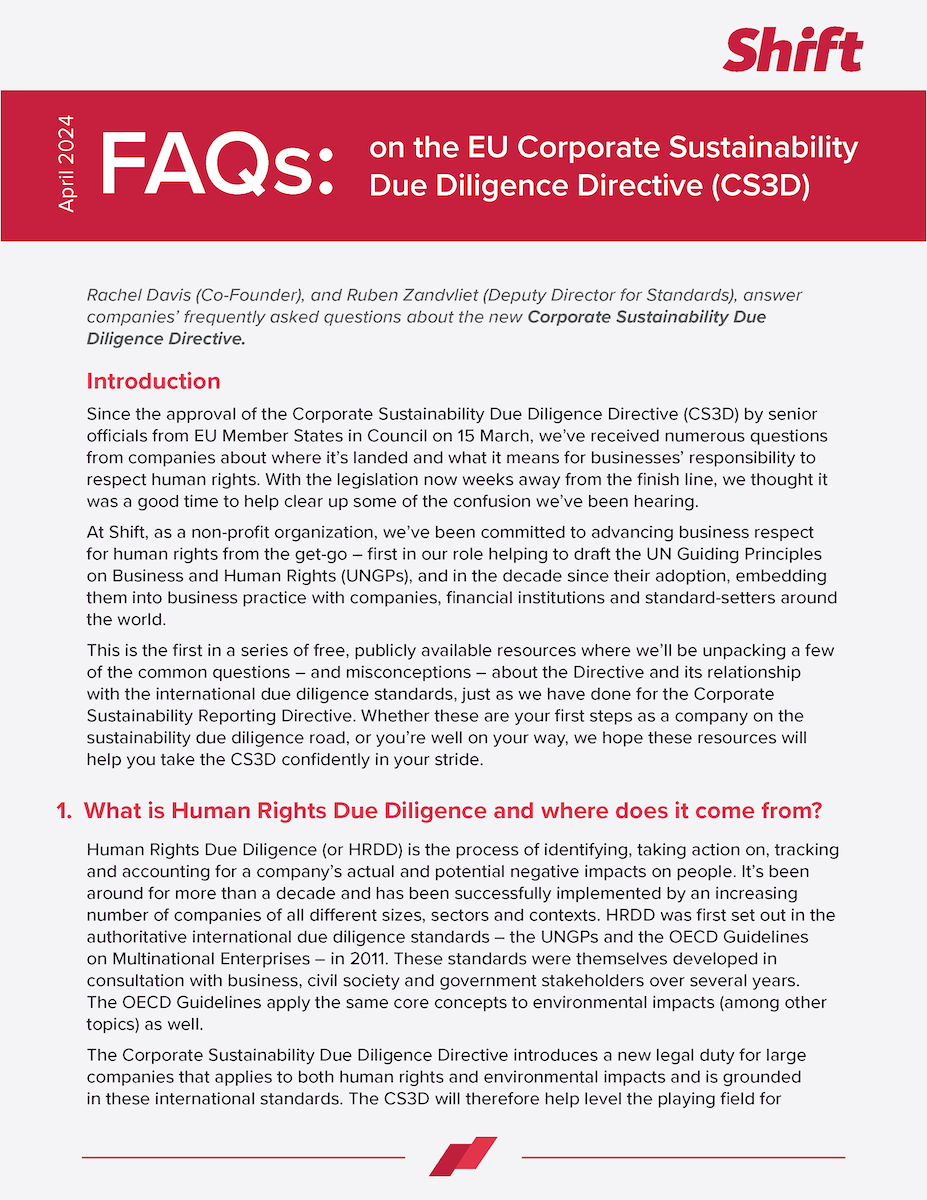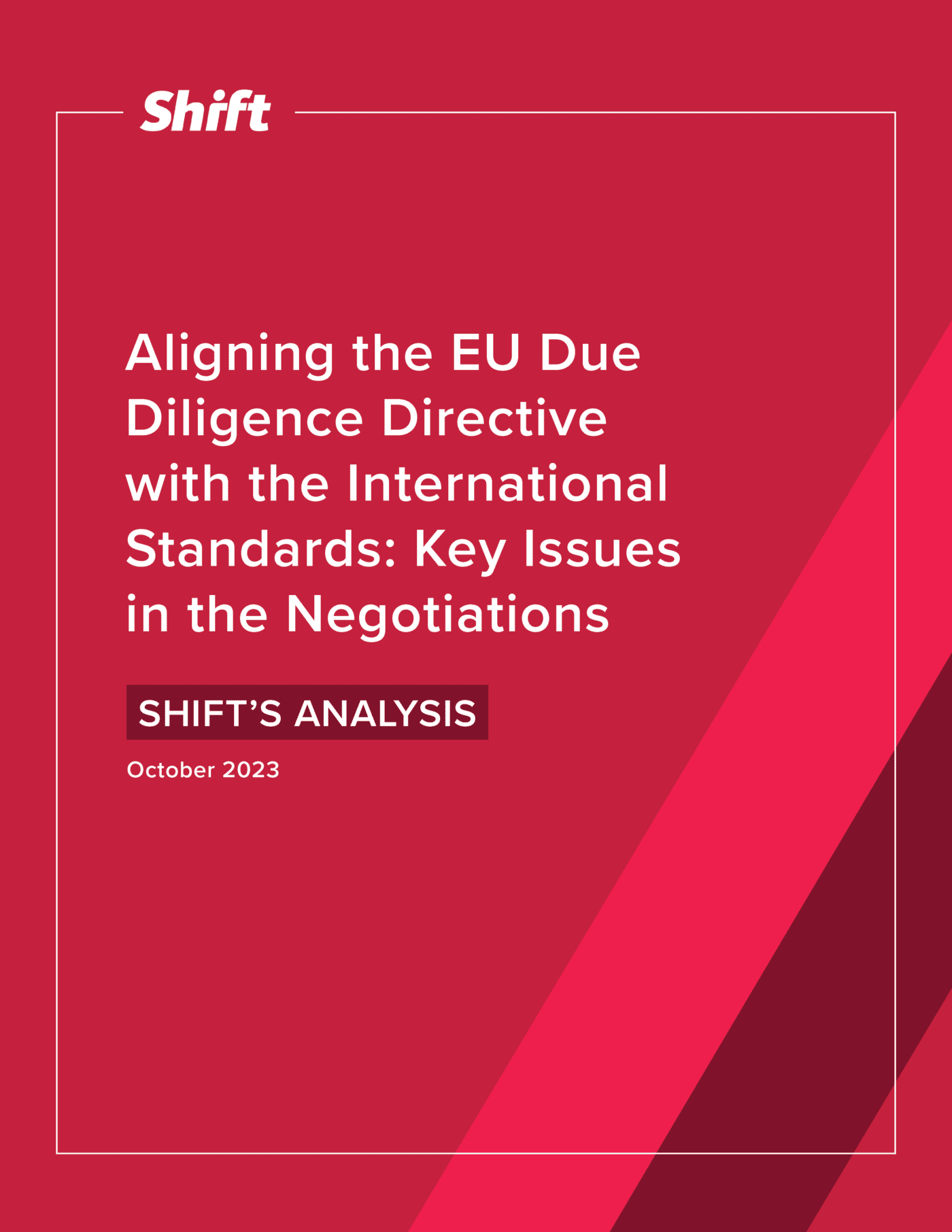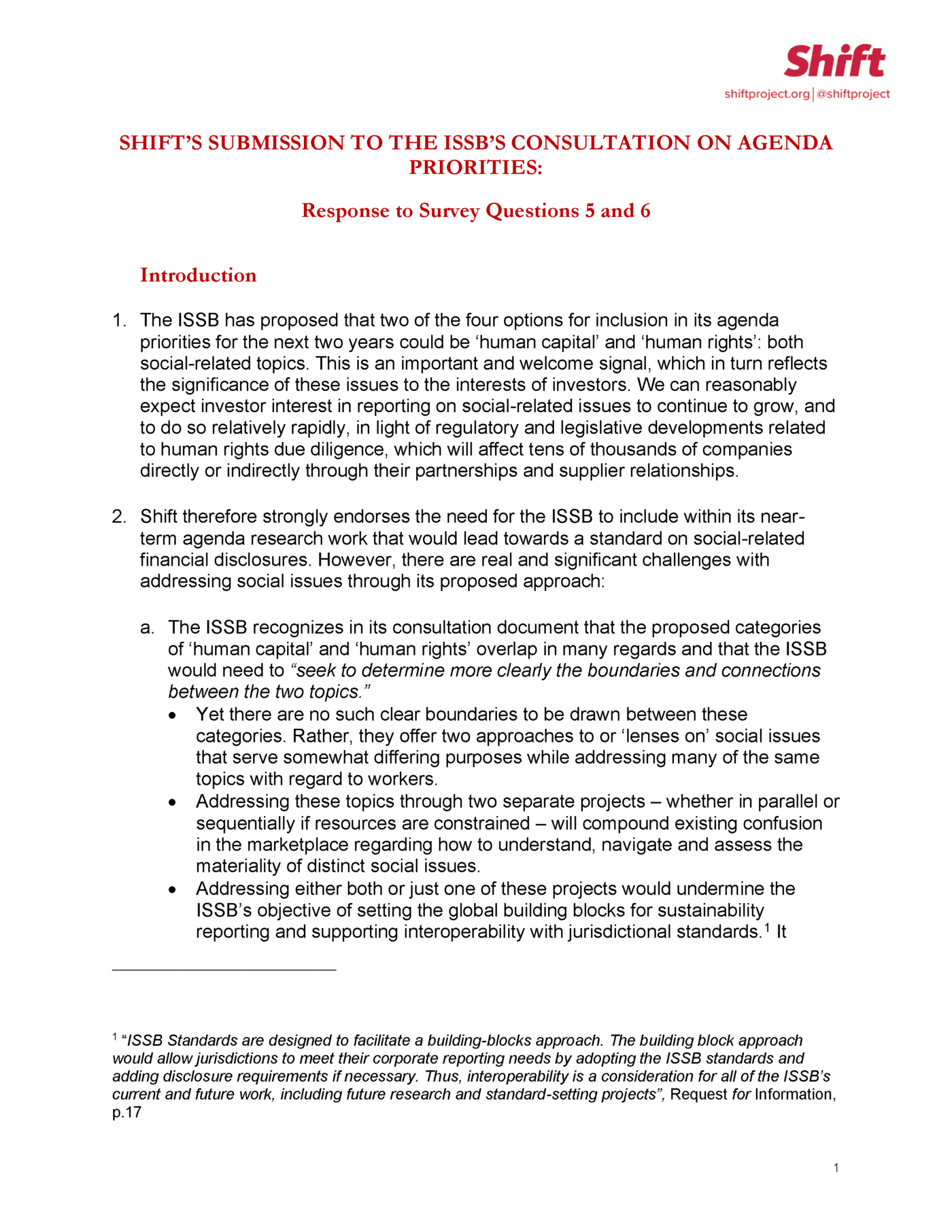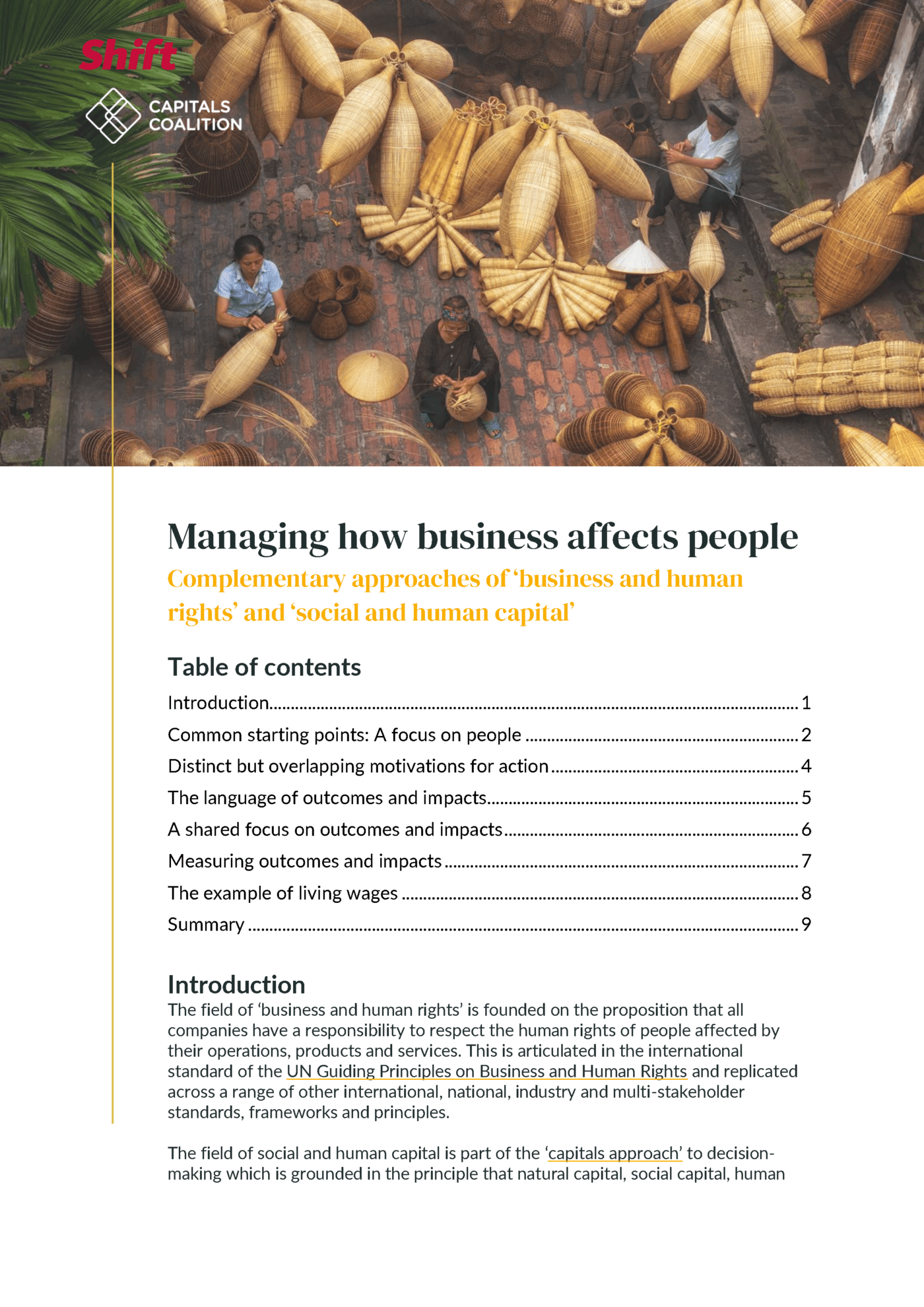This article originally appeared in this compendium by the Business and Human Rights Resource Centre
As the debate on mandatory human rights due diligence (mHRDD) at the EU-level starts to move from the if to the what and the how, a key concern that policymakers must grapple with is the size of businesses covered by any incoming legislation.
While our work with some forward-thinking small and medium-sized businesses suggests that they boast some significant advantages over their larger counterparts when it comes to realizing their responsibility to respect human rights, legislators will need to act with care not to disadvantage them. The first step would be to anchor mHRDD in the UN Guiding Principles’ understanding that while the responsibility to respect human rights applies to all businesses, the means through which a company meets that standard will vary according to its size.
Here are five key considerations to support such an approach being reflected in new legislative developments:
- Half of the world’s population works for a small or medium business
First, let’s look at the numbers: SMEs account for about 90% of all businesses and contribute up to 50% of total employment in the world. That is why, if legislation aims to drive positive outcomes for people in the context of business activity, it must reach the businesses people work for and interact with. What’s more, we see that the support amongst larger businesses for mHRDD increasingly hinges on the inclusion of SMEs in any such regimes, given the interest of multi-nationals in the level-playing field and the increased leverage with resistant suppliers that mHRDD promises.
- Prioritization of salient issues
Most stakeholders recognize that companies – regardless of size – need to prioritize their salient human rights issues. For small businesses with limited resources, prioritizing action on the most severe risks to people is even more crucial to get traction. For instance, we’ve spoken to businesses in the apparel, food, retail and cleaning sectors that have made progress by focusing on addressing the problem of low wages, believing this will have knock-on effects on a host of other rights. The expectations hardwired into legislation ought to reflect the need to enable businesses to prioritize action on human rights impacts based on their severity and that the complexity of company processes for identifying and taking action on impacts will be affected by the size of the company in question.
- A focus on the quality of relationships with business partners
In comparison to larger businesses, SMEs tend to have fewer suppliers and customers, which can enable deeper and better-quality relationships. In work that we’ve done with forward thinking SMEs, we’ve seen how they often spend a lot more time selecting business partners that are the right fit and putting more up-front investment into finding those who share their values and tend to perform well on human rights. For small businesses that aim to respect people, partnership with suppliers is a necessity not a choice.
However, there is a risk that legislation on mHRDD incentivizes an approach where a buyer ‘polices’ its supply chain through a process of monitoring and social audits. This approach would fail to encourage the right behaviors for any business, but would particularly impact SMEs. As policymakers consider how best to articulate the standard of human rights due diligence, they should encourage practices that focus on relationship-building, not policing, to work towards better outcomes for people.
- Expectations on action need to move beyond commercial and legal leverage
SMEs often lack the cold, hard commercial leverage of larger multi-nationals, and must think more creatively. For instance, we’ve seen how one medium-sized business has rolled out programs on freedom of association and worker voice in the most challenging contexts, despite having less than 5% of the product buy from suppliers. This business achieved buy-in through explaining the benefits of the program, and drawing on the trusted relationship it had developed, rather than requiring suppliers to participate.
Under any form of mHRDD, the nature of a company’s involvement with a human rights impact, and the strength of the action it has taken to prevent it from occurring, is likely to determine the assessment of the consequences the company faces. Such assessments must consider the wide spectrum of avenues to effectively influence business partners, rather than honing in narrowly on the extent to which a company has deployed legal or commercial leverage, which SMEs are unlikely to possess.
- Respect for human rights is more than a mechanical due diligence process
One of the advantages that committed SMEs have over their larger counterparts when it comes to human rights is a greater facility to nurture a culture that supports people and their ability to speak up for themselves. For SMEs, people truly are their most important asset. The very lack of resources and stretch that skeptics cite as reasons why SMEs may find it difficult to respect human rights means that smaller businesses have to respect, trust, motivate and empower their employees to succeed. From talking to executives in SMEs, it is clear to us that committed leaders are able to instill values of empathy and empowerment through face-to-face interaction with employees, listening to them and modelling desirable behaviors.
Experience shows that even the most sophisticated human rights risk management processes will bear little fruit if they are not fully embedded in company culture, lived by the business’ leaders, and supported by effective governance structures. Here, values-driven SMEs have an advantage and legislation should support that relative strength, setting the expectation not just for a mechanical due diligence process, but one that lives and breathes, informing company behavior and decision-making.
Structuring legislation to encourage and compel companies to adopt and scale rights-respecting business practices and behaviors is no small task. But the legislation will have limited impact for the people that need it the most if it does not consider how best to incorporate SMEs within its scope. Doing so means ensuring an adaptable framework that sets a clear standard of conduct, but allows businesses of all sizes to reach that standard drawing on their unique strengths and expertise.

 By Francis West
By Francis West



